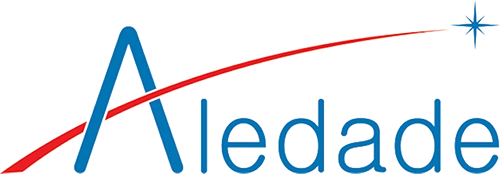Welcome to 2022. What is there to say about the new year except that the work continues. We wish you many moments of sunshine piercing through the work.
Telehealth
The Public Health Emergency continues and we expect it to be renewed toward the end of the month. All telehealth flexibilities from the PHE continue. Reminder that the 2022 Physician Fee Schedule is in effect, so flexibilities for mental health services provided via telehealth, including the removal of geographic restrictions and the ability to offer audio-only, will continue even after the PHE ends.
CMS Vaccine Mandates
Deadlines for Health Care Facilities Vaccine Mandates in half of the states
- First dose by January 27, 2022
- Second dose or exemption by February 28, 2022
What is the definition of a health care facility?
The vaccine mandate only applies to Medicare- and Medicaid-certified providers and suppliers such as Ambulatory Surgical Centers, Hospitals, Long Terms Care Facilities (SNFs and NFs), Home Health Agencies, Critical Access Hospitals, ESRD facilities, and Rural Health Clinics/ Federally Qualified Health Centers (RHCs and FQHCs). It does not directly apply to other health care entities, such as physician offices, that are not regulated by CMS.
Status of Lawsuits
- States where the mandate is currently scheduled to go into effect: District of Columbia, the territories, and the following states: California, Colorado, Connecticut, Delaware, Florida, Hawaii, Illinois, Maine, Maryland, Massachusetts, Michigan, Minnesota, Nevada, New Jersey, New Mexico, New York, North Carolina, Oregon, Pennsylvania, Rhode Island, Tennessee, Vermont, Virginia, Washington, and Wisconsin
- States where the mandate is preliminarily enjoined: Alabama, Alaska, Arizona, Arkansas, Georgia, Idaho, Indiana, Iowa, Kansas, Kentucky, Louisiana, Mississippi, Missouri, Montana, Nebraska, New Hampshire, North Dakota, Ohio, Oklahoma, South Carolina, South Dakota, Texas, Utah, West Virginia, and Wyoming
- Supreme Court met on Friday and will likely weigh-in prior to the January 27th deadline
No Surprises Act
The No Surprises Act has officially gone into effect and has two major components.
- Prohibition on out-of-network charges and balance billing to patients when the facility or office is in-network, but some other health care clinicians or providers are out-of-network
- Highly unlikely for Aledade partner practices to be in this situation
- Possible example the primary care physician at the practice is in-network but refers to a specialist in the same practice that is out-of-network.
- For self-pay and uninsured patients, you need to give them an estimate of charges upfront known as a good faith estimate
What you need to do:
- Health care providers and facilities must post a sign in the office and a notice on their website providing patients with an easy-to-understand notice explaining the applicable billing protections, who to contact if you have concerns that a provider or facility has violated the protections, and that patient consent is required to waive billing protections (CMS provided sample).
- Review contracting to see if you have any clinicians or services within the practice that are out-of-network for plans that others are in-network with
- For self-pay and uninsured patients, providers are required to provide a good faith estimate (GFE) that includes expected charges for the items or services that are reasonably expected to be provided in conjunction with the primary item or service, including items or services that may be provided by other providers and facilities (link to FAQs).
- The charges that must be included in the GFE are only those items and services furnished by the provider or facility that is responsible for scheduling the primary service (aka convening provider or facility) and any other providers or facilities that provide services in conjunction with the primary service (aka co-providers or facilities). This does not include the retail pharmacy costs.
- Expected charges must be sent to the convening provider no later than 1 business day after receiving the request. In addition, co-providers and co-facilities must notify and provide new GFE information to a convening provider or convening facility if the co-provider or co-facility anticipates any changes to the scope of GFE information previously submitted to a convening provider or convening facility.
- While it is technically required in 2022 for the estimate to include expected charges from other health care providers related to the condition being treated, HHS is not enforcing that requirement until 2023.
- GFEs must be provided as either paper or printable electronic copies and must factor in any financial assistance the individual may receive.
- Individuals can use the patient-provider dispute resolution (PPDR) process if the actual billed charges exceed the GFE by at least $400. For purposes of PPDR, the total of expected vs. billed charges are separated by provider (Guidance for Providers, including disclaimer example)
Thank you for everything you are doing and please stay safe.



